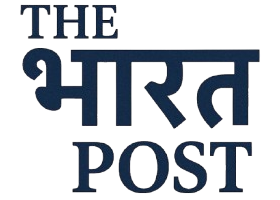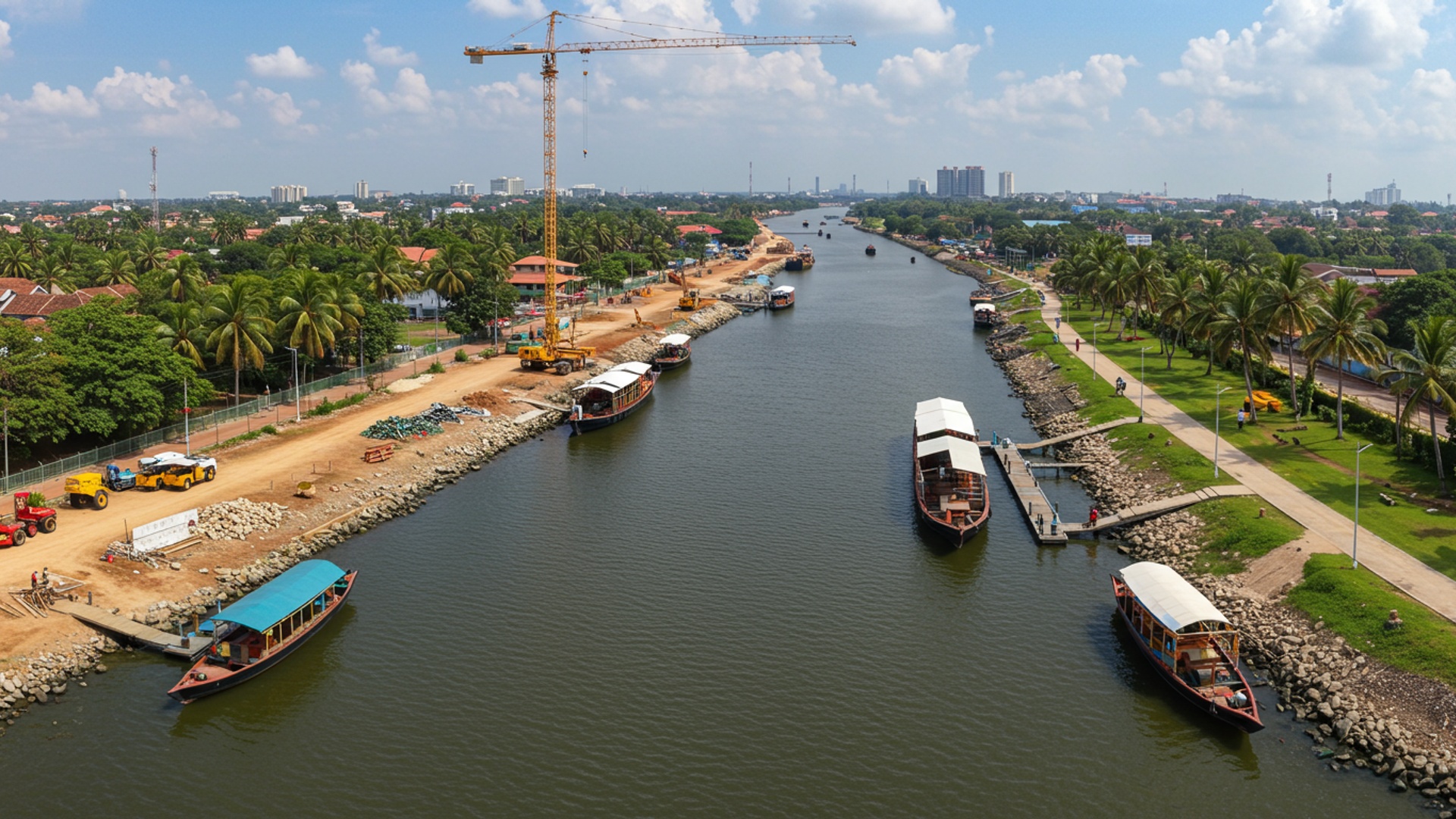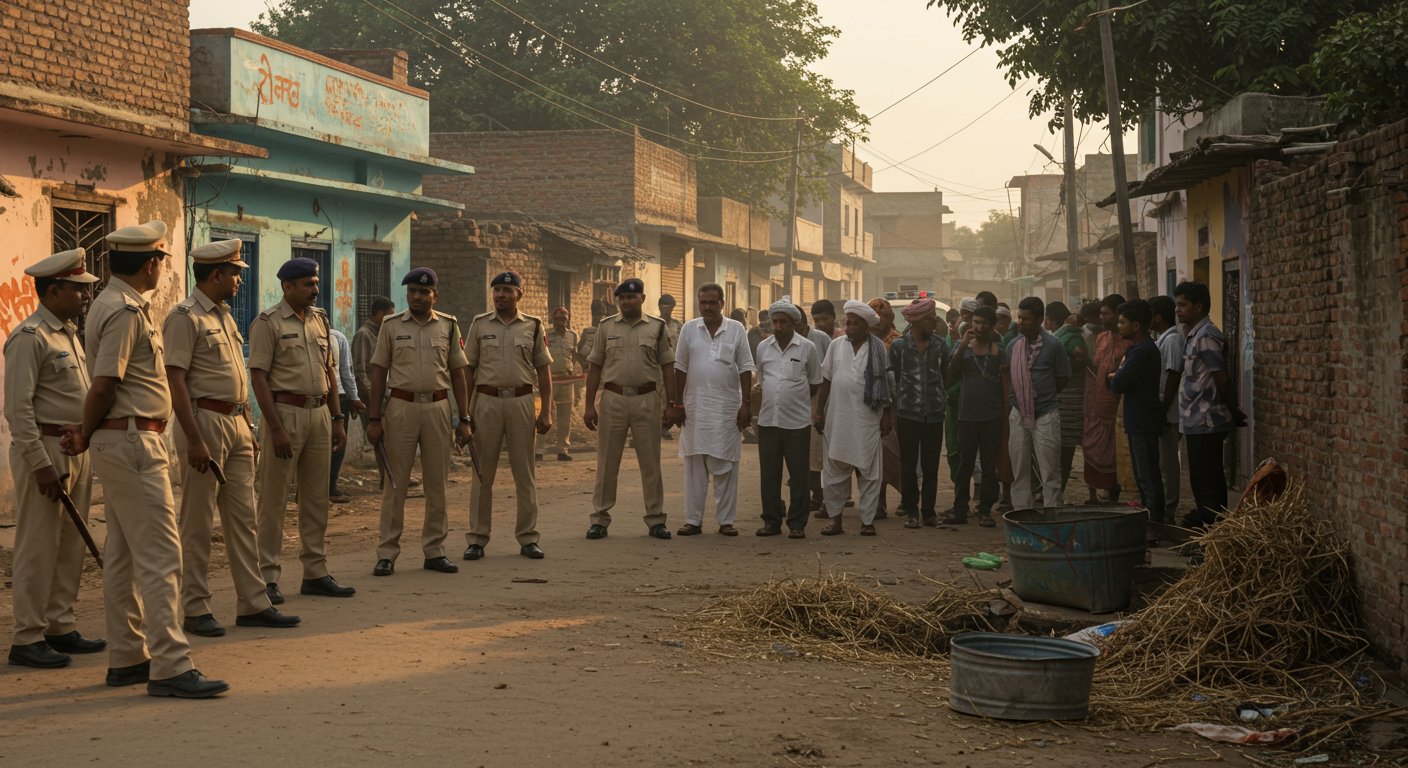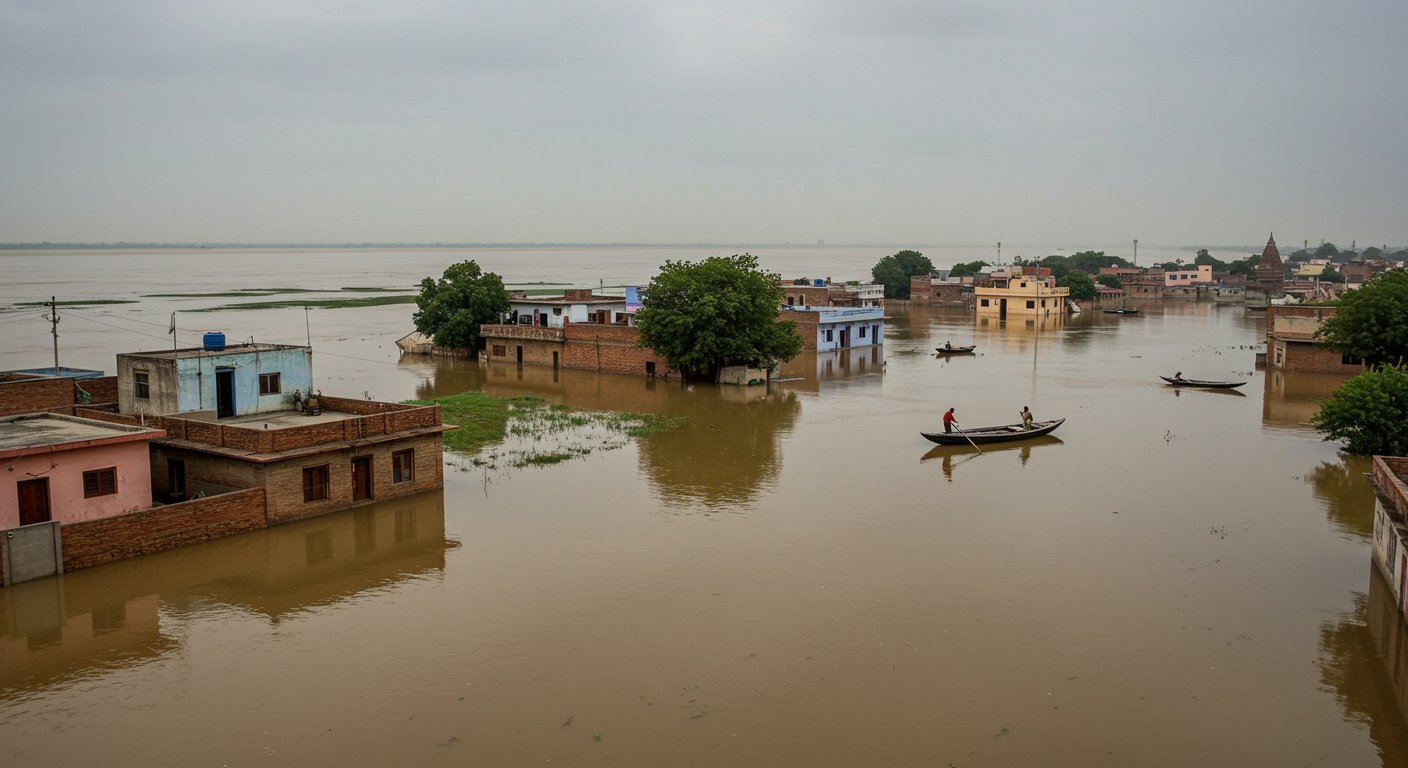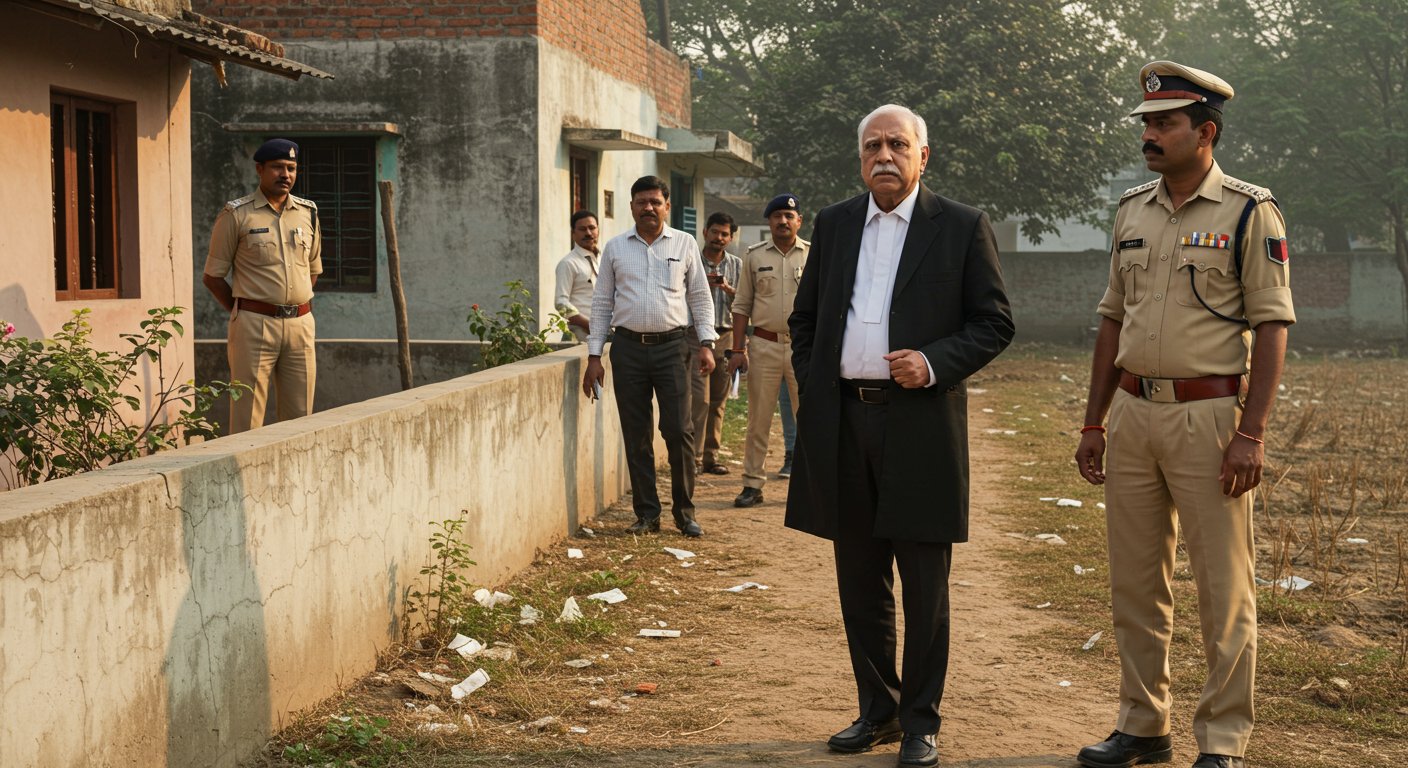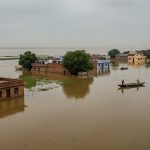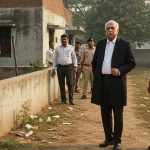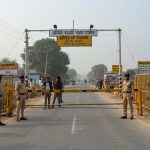Kochi’s grand canal clean-up project is now active, starting a big change for the city. This large effort aims to make the old, dirty water paths clean again. These canals have been full of trash and bad water for many years. City officials say this work will make the water better and build new green areas. It will also help local money flow, giving Kochi a fresh look. Workers are now on site, using machines to fix these essential city water paths, promising a cleaner, healthier future for everyone.
A City’s Past and Present Waterways
Kochi, a well-known port city on India’s western coast, has always been defined by its rich network of rivers, creeks. canals. For many years, these waterways were the city’s lifeline, serving as crucial routes for people and goods. They also provided water for daily needs and helped drain rainwater during the monsoon season, carrying it out to sea. But, over the past few decades, these vital canals have suffered greatly due to fast and unplanned city growth.
Today, many of these canals face severe problems. Buildings and bridges have been built too close to the waterways, blocking the natural flow of water. The canals have become dumping grounds for untreated waste, including household garbage, dirty water. even waste from toilets and slaughterhouses. This has led to heavy pollution. Silt and invasive plants, such as water hyacinth, have further clogged the canals, reducing their ability to hold and move water. As a result, the water has become stagnant and dirty, leading to a higher risk of floods, an increase in mosquitoes, bad smells, health dangers. a loss of water life. Reports show that a large number of households, 44 percent, experience flooding during heavy rains. 39 percent face tidal flooding. The effects of climate change, with rising sea levels and more extreme rainfall, are making the flooding problems even worse.
Making Canals Clean Again
In response to these long-standing issues, the city has started a large-scale effort called the Integrated Urban Regeneration and Water Transport System (IURWTS) project. This big project is set to cost Rs 3,716. 10 crore, a sum that was adjusted from an earlier estimate. The goal is to finish this work within two years. The project is being carried out together by Kochi Metro Rail Limited (KMRL) and the Kerala Water Authority (KWA), with money coming from the Kerala Infrastructure Investment Fund Board (KIIFB).
The main goals of this project are clear: to stop flooding and provide a lasting fix for the city’s waterlogging problems. It also aims to build a smooth water transport system, improve public health and cleanliness. raise living standards across the city. A key part of the plan is also to boost tourism and provide new places for people to enjoy outdoor activities. The project will also work to clean up waste and protect the natural water environment.
Steps for City Improvement
The project includes many different kinds of work to reach its goals. A major focus is on making six main canals clean again: Perandoor, Chilavannoor, Edappally, Thevara, Konthuruthy. Market Canal. This involves making them deeper, wider. more pleasing to the eye. For canals where boats will travel, a minimum width of 16. 5 meters will be made sure. Cleaning out mud and dirt from canals, like the Chilavanoor and Market Canal, is also a key part of this effort. Removing unwanted plants like water hyacinth will help too.
To make travel easier on the water, new boat services will be started, for example, on the Edappally and Chilavannur canals. A new 11. 5-kilometer path for boats will be created from Muttar to Chitrapuzha through the Edappally Canal. Boats will run every half hour on this route, using a group of 10 new boats that can pass under bridges easily. New places for boats to stop will also be built. This water transport system will also connect with the Water Metro services, linking the Vyttila-Thevara route with the Elamkulam Metro Station through the Chilavannur Canal, creating a connected public transport system.
Many new structures are also part of the plan. Walkways and places for fun activities will be built along the canal banks, ensuring at least 2 meters of space on each side. In total, 56 road bridges and 46 foot bridges will be put in place. Security cameras will watch over the canal areas. One of the first major construction tasks is the Bund Road bridge over the Chilavanoor canal, costing Rs 39 crore, which is expected to be finished by December 2025. The Chettichira bridge on Subhash Chandra Bose Road, costing Rs 4. 51 crore, will also be rebuilt, along with the Kallupalam bridge over the Thevara canal.
A big part of the project focuses on managing waste and keeping the city clean. New sewage treatment plants are being built at Elamkulam, Vennala, Perandoor. Muttar, with a budget of Rs 1,325 crore, which covers the sewer network as well. A long underground sewer network, 500 kilometers in length, will also be set up to treat all household dirty water. Better ways to collect solid waste from homes are also part of the plan.
The project also includes plans for more green spaces and improving nature. Trees will be planted along the canals to create green paths. India’s largest Miyawaki forest, a type of dense, fast-growing forest, will be planted along the Edappally canal. Floating wetlands and plants like mangroves will be used to help clean the water and bring back natural life. Parks that protect nature will also be created to encourage tourism related to nature and create jobs for local people. The Bund Road area will be made more beautiful. A new waterfront, similar to the city’s Marine Drive, is planned along the Chilavannur Canal.
Buying the necessary land for the project has been a big step, with Rs 1,235. 70 crore set aside for this. Payments to landowners are almost complete in the area from Muttar to Marottichuvadu. An additional Rs 28. 27 crore has been put aside for helping people move and settle in new places.
Project Work in Progress
The project has now officially begun. The Chief Minister, Pinarayi Vijayan, is expected to formally start the project work very soon. Construction of the Bund Road bridge over the Chilavanoor canal is moving forward and is expected to be done by December 2025. Digging and cleaning work on the Chilavanoor canal, which has a budget of Rs 8 crore, is set to begin in the coming days. Work on the Market Canal, with a budget of Rs 38 crore, is being given high importance. the work contract has been given out, with construction starting soon. The Edappally Canal will be fully ready for boats to travel on. Construction of a larger sewage plant in Elamkulam, with Rs 341. 97 crore set aside, will also start soon. The process of acquiring land for the project is moving quickly. Kochi Mayor M Anilkumar has stated that the canal cleaning program is making good progress.
What People are Saying
Many people involved in the project have shared their thoughts on its importance. Industries Minister P Rajeeve has said that once this project is finished, Kochi will become one of the best cities in the modern age. He believes it will completely change the canals by improving water flow and making them clean. He also stressed that everyone needs to work together for the project to succeed.
“Kochi will become one of the best cities in the modern era upon completion of the biggest project sanctioned by the state government.”
Kochi Mayor M Anilkumar compared the possible impact of this project to that of the already successful Water Metro. He said that the project will solve long-standing problems like waterlogging and mosquito issues. will also change the city’s appearance in terms of buildings, businesses. chances for tourism.
“The implementation of the project will put an end to Kochi’s perennial problems of waterlogging, mosquito menace. other issues. It will also alter the face of the city in terms of infrastructure, industry. tourism potential.”
Loknath Behera, the Managing Director of KMRL, highlighted that the project will not only ease monsoon floods and deal with waste problems but also bring new life to the city’s historic canals through water transport, walkways. places for water sports.
“The project will not only alleviate monsoon flooding and address the persistent waste management issues in Kochi but also rejuvenate our historic canals with water transport, walkways. water sports facilities.”
City residents have also been part of the planning, with their thoughts and suggestions being collected. This shows a commitment to including everyone in the project. Older residents remember a time when the canals were clean and used for cooking and washing. Some residents hope to one day swim in the canals again, though they know the water must be clean first.
The United Nations Environment Programme (UNEP) is supporting this project as part of its Generation Restoration Cities plan. Mirey Atallah, who leads the Adaptation and Resilience Branch in UNEP’s Climate Change Division, noted that Kochi’s canals show the big environmental problems of climate change, loss of nature. pollution. She believes that bringing the canals back to life will help the city fight these threats and give its people a better place to live and a safer future.
“Kochi’s stagnant, lifeless canals embody the three big environmental crises of our age: climate change, nature loss and pollution. Reviving them will raise the city’s defences against these existential threats and give its residents a more liveable city and a safer future.”
Bechtel. org, a social impact group, has played a role in designing a pilot project. Their work showed that combining natural and engineered solutions creates good results for people and is a cost-effective way to solve problems. The local government, the Kochi Municipal Corporation, has been involved in planning and will be carrying out the pilot project.
Previously, experts and environmental activists like Advocate Charles George and Professor Sunny George of SCMS Water Institute, pointed to uncontrolled city growth and waste dumping as the main reasons for the poor state of the canals.
Expected Benefits
The completion of the Integrated Urban Regeneration and Water Transport System project is expected to bring many positive changes to Kochi. The most direct benefit will be a lasting solution to the yearly problem of waterlogging, which has troubled residents for a long time. By ensuring a steady flow of water and preventing blockages, the risk of floods will be greatly reduced.
The creation of a widespread water transport network will offer new ways for people to move around the city, possibly reducing road traffic. The linking of canal boat services with the Metro and Water Metro will create a smooth system for public travel, making it easier to connect different parts of Kochi. This improved connectivity is expected to make daily life more convenient for thousands of people.
Beyond practical benefits, the project aims to improve public health and hygiene. The construction of modern sewage treatment plants and a comprehensive sewer network will stop untreated waste from entering the canals, leading to cleaner water and a healthier environment. This will help reduce diseases spread by water and lower the number of mosquitoes, which have been a major problem in the past.
The project also holds significant promise for tourism and recreation. The newly cleaned and beautified canals, along with the development of walkways, green spaces. facilities for water sports, will transform neglected areas into attractive public spaces. This could draw more visitors to Kochi, boosting local businesses and creating new job opportunities. The vision is to make the canal banks a more central part of people’s lives, offering places for relaxation and enjoyment.
Finally, the environmental benefits are also very crucial. Restoring the health of the canals will help bring back local plant and animal life, improving the city’s natural balance. The planting of trees and creation of green corridors will help make the city cooler and more pleasant, especially as climate change brings hotter weather. By making the city’s water system more resilient, Kochi will be better prepared to face future environmental challenges.
![]()
